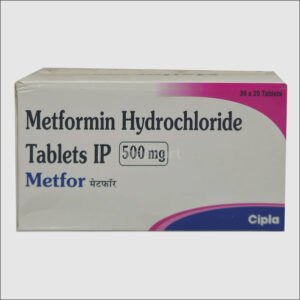Crude oil is a naturally occurring, unrefined petroleum product composed of hydrocarbon deposits and other organic materials. It is a fossil fuel that is extracted from the earth through drilling and is processed in refineries to produce various refined petroleum products such as gasoline, diesel, jet fuel, and other essential commodities. Crude oil is the backbone of the modern energy industry and plays a vital role in transportation, industry, and energy production.
Composition and Types of Crude Oil
Crude oil varies in composition based on its geographic source. It consists primarily of hydrocarbons but also contains sulfur, nitrogen, oxygen, and trace metals. The quality of crude oil is determined by its density and sulfur content, classifying it into different categories:
Light Crude Oil: Has low density and high API gravity, making it easier to refine. It yields a higher percentage of valuable refined products.
Heavy Crude Oil: Denser and more viscous, requiring complex refining processes. It typically contains more impurities such as sulfur and metals.
Sweet Crude Oil: Contains low sulfur content, making it more desirable for refining and reducing environmental emissions.
Sour Crude Oil: Has higher sulfur content and requires additional refining processes to remove contaminants.
Extraction and Refining Process
The extraction of crude oil involves drilling into reservoirs and bringing the raw petroleum to the surface. It is then transported via pipelines, tankers, or rail to refineries, where it undergoes a series of refining processes, including:
Distillation: Crude oil is heated and separated into different components based on boiling points.
Cracking: Large hydrocarbon molecules are broken down into smaller, more valuable products like gasoline and diesel.
Reforming: Chemical processes enhance the octane rating of gasoline and improve fuel quality.
Hydrotreating: Removes sulfur and other impurities to meet environmental regulations.

Refined Products and Their Uses
Once crude oil is refined, it is transformed into various petroleum products that serve multiple industries and consumers worldwide:
1. Gasoline
Gasoline is the most widely used petroleum product, primarily serving as fuel for cars and other vehicles. It is refined to enhance performance, improve combustion efficiency, and reduce emissions. Additives are often blended with gasoline to improve stability and engine performance.
2. Diesel Fuel
Diesel fuel is used in trucks, buses, trains, ships, and industrial machinery. It is denser and contains more energy per gallon than gasoline, making it ideal for heavy-duty applications. Advances in diesel technology have led to the development of low-sulfur diesel to reduce environmental impact.
3. Jet Fuel
Jet fuel, mainly kerosene-based, powers commercial and military aircraft. It is formulated to withstand extreme temperatures and pressures, ensuring efficient performance at high altitudes. Different grades of jet fuel, such as Jet A and Jet A-1, are used globally, depending on climate conditions and aircraft requirements.
4. Other Refined Products
Liquefied Petroleum Gas (LPG): Used in heating, cooking, and as fuel for certain vehicles.
Asphalt: A residue from refining, used in road construction and roofing.
Lubricants: Essential for reducing friction in engines and machinery.
Petrochemicals: Used in plastics, synthetic rubber, fertilizers, and other chemical industries.
Economic and Environmental Impact
The crude oil and refined products industry significantly contributes to the global economy, influencing energy prices, trade balances, and employment. However, it also poses environmental challenges, including greenhouse gas emissions, oil spills, and habitat destruction.
Governments and industries are focusing on cleaner technologies, alternative fuels, and more efficient refining methods to minimize environmental harm. The shift towards renewable energy sources, electric vehicles, and biofuels is gradually reshaping the energy landscape.
Conclusion
Crude oil and its refined products are essential for modern life, powering transportation, industry, and commerce. While it remains a critical energy source, the industry is evolving towards more sustainable practices to balance economic growth with environmental responsibility
Our Products
-
Testosterone Enanthate
$240.00 / Per 10ml
-
Metformin 500MG
$0.80 / Per Pill
-
Cipro 500MG
$1.00 / Per Pill






